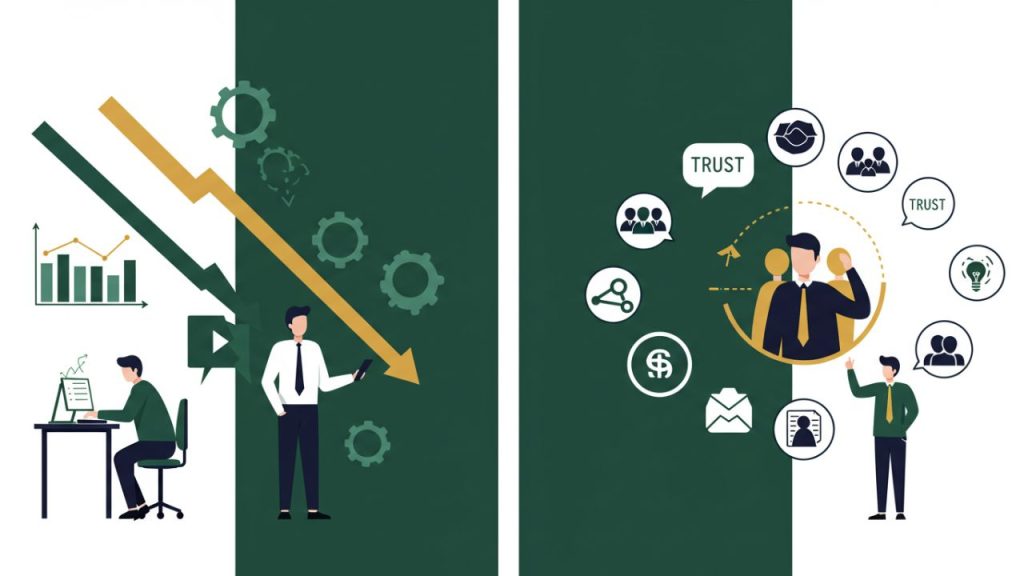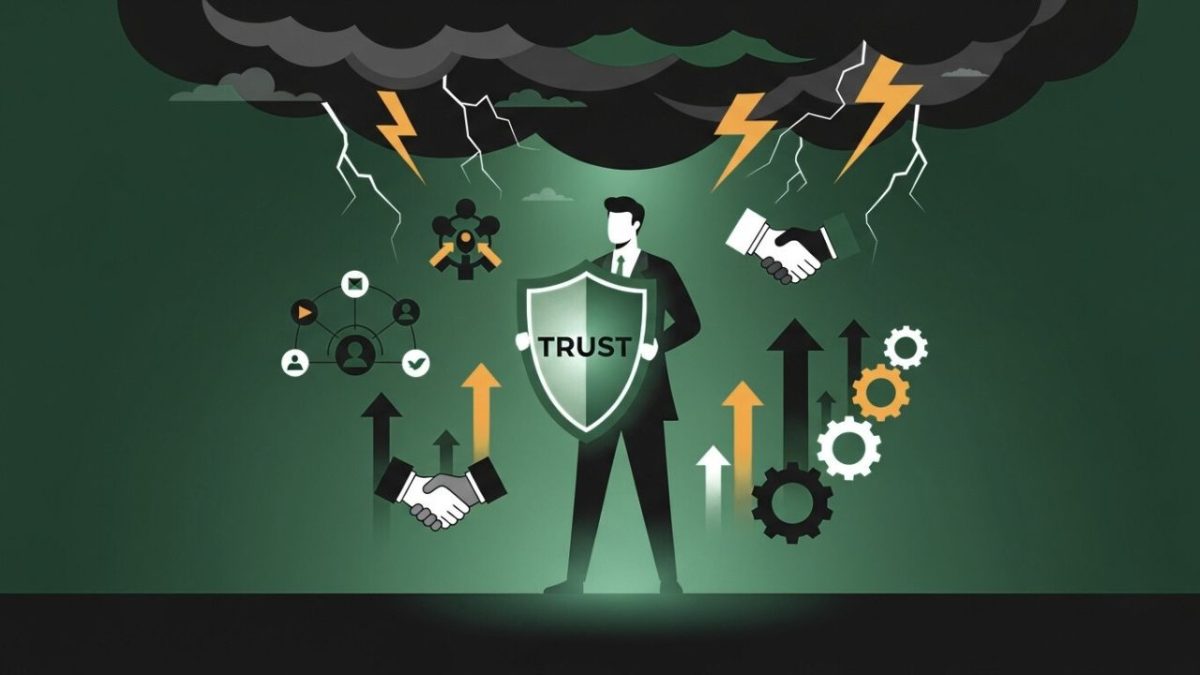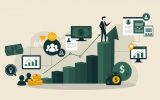Opening Story:
In 2008, when the global financial crisis shook industries to their core, thousands of businesses collapsed. Yet, some individuals not only survived but thrived. What was their secret? It wasn’t just skill, luck, or timing—it was the power of their personal brand.
A strong personal brand acts like an anchor during storms. It builds trust, positions you as an authority, and ensures that even in uncertainty, your value remains undeniable. Today, with inflation, layoffs, and unpredictable markets, the same lesson repeats itself: those with resilient personal brands don’t just weather downturns—they emerge stronger.
1. Why Economic Downturns Expose Weak Brands
When money tightens and companies cut costs, the spotlight falls on what (and who) truly adds value.
- Trust becomes currency. Consumers and employers are more cautious, choosing people they know and trust.
- Generic professionals fade. Those without a clear personal brand blend into the crowd.
- Authenticity matters more. Over-polished images crack when pressure rises; real voices shine.
📊 A LinkedIn survey revealed that professionals with strong personal brands were 45% more likely to secure new opportunities during recessions compared to those without one.
2. The Psychological Safety of a Strong Personal Brand
A downturn fuels fear: “Will I lose my job? Will clients still hire me?” Personal branding acts as a psychological safety net.
- For entrepreneurs → It reassures clients you’re worth the investment.
- For executives → It safeguards your employability when layoffs strike.
- For freelancers → It builds consistent pipelines of projects.
Think of Gary Vaynerchuk during the 2008 crash. While others downsized, his authentic, passionate personal brand on social media turned him into a global authority.
3. Case Studies: Brands That Thrived in Recession
a. Howard Schultz (Starbucks)
During the 2008 crisis, Schultz leaned on his personal credibility. By openly communicating Starbucks’ values and long-term vision, he kept stakeholders aligned and customers loyal.
b. Marie Forleo (Entrepreneur & Coach)
Marie used the 2009 downturn to strengthen her online presence, offering free content and community support. Her personal brand of empowerment helped her community grow rapidly when others were retreating.
c. Elon Musk
Even in downturns, Musk’s personal narrative of innovation kept investors and followers engaged, sustaining Tesla and SpaceX through turbulent times.

4. Actionable Strategies: How to Recession-Proof Your Brand
a. Double Down on Visibility
Don’t hide—show up. Create content consistently. Be where your audience is looking: LinkedIn, podcasts, industry forums.
b. Lead with Value, Not Sales
Offer insights, frameworks, or even free resources that show generosity. In tough times, value-driven voices are remembered.
c. Strengthen Relationships
Personal brands thrive on community. Engage deeply with your network. Send thoughtful messages, collaborate, and connect beyond business.
d. Position Yourself as a Thought Leader
Downturns create uncertainty. Be the voice of clarity—share predictions, analysis, and solutions. People will follow stability.
e. Diversify Your Digital Presence
Build multiple touchpoints (blogs, email lists, webinars). If one platform shrinks, your influence won’t.
5. Common Mistakes That Kill Brands in Downturns
- Going silent → Disappearing signals irrelevance.
- Panic-pivoting → Constantly changing direction confuses your audience.
- Over-selling → Pushing products/services during crises erodes trust.
- Ignoring empathy → Brands that only talk about themselves lose connection.
6. Future Trends: Personal Branding Beyond Recessions
- AI-Enhanced Branding → Using AI to create smarter, data-driven brand strategies.
- Micro-Communities → People will trust smaller, authentic groups more than massive audiences.
- Reputation as Currency → In the gig and creator economy, personal brand equity may outweigh resumes or portfolios.
- Authenticity 2.0 → Audiences will demand transparency—not just curated stories, but real behind-the-scenes narratives.
📈 According to Edelman’s Trust Barometer 2024, 67% of consumers say they trust “people like themselves” more than institutions or corporations.
7. FAQs: How Personal Brands Survive Economic Downturns
Q1: Is personal branding still important if I already have a stable job?
Yes. Economic downturns often trigger layoffs. A personal brand makes you visible to recruiters and opportunities.
Q2: How often should I post during a recession?
Consistency beats frequency. Even 2–3 meaningful posts a week can keep you top of mind.
Q3: What’s better—focusing on skills or branding?
Both. Skills get you in the door; branding ensures people remember and trust you.
Q4: Can personal branding really drive ROI in a downturn?
Absolutely. Studies show individuals with strong personal brands see up to 3x more career opportunities, even when industries shrink.
Q5: What if I’m just starting to build my personal brand during a downturn?
It’s the best time to start. While others retreat, your consistency will stand out.
Conclusion: Resilience Is Branding
Recessions will always come and go. The difference between those who struggle and those who rise lies in one thing: personal branding.
When you cultivate trust, visibility, and authenticity, your brand becomes recession-proof. It doesn’t just help you survive economic downturns—it ensures you emerge from them stronger, more trusted, and more influential than ever before.




